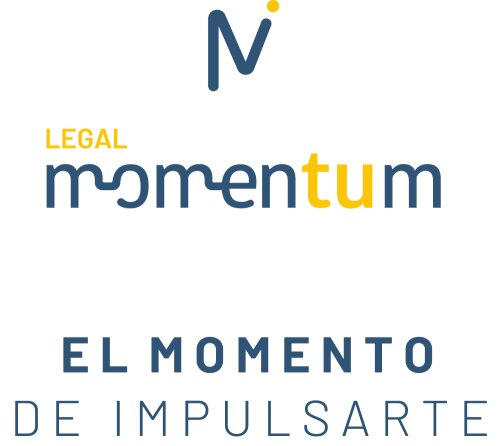Best Debt & Collection Lawyers in Spain
Share your needs with us, get contacted by law firms.
Free. Takes 2 min.
Or refine your search by selecting a city:
List of the best lawyers in Spain
About Debt & Collection Law in Spain
Debt and collection law in Spain is designed to regulate the relationships between creditors and debtors, ensuring that debt recovery processes are fair and transparent. This branch of law addresses the obligations of debtors to meet their repayment responsibilities and provides legal avenues for creditors to pursue unpaid debts. The Spanish legal system offers various mechanisms for debt collection, including negotiation, formal demands, and court proceedings. However, these processes are often complex and require a solid understanding of local laws and regulations.
Why You May Need a Lawyer
Several situations may necessitate the assistance of a lawyer experienced in debt and collection matters in Spain:
- If you are a creditor attempting to recover an outstanding debt and the debtor has ceased payments or communication.
- If you are a debtor facing aggressive collection tactics that may be unlawful or experiencing financial distress preventing the repayment of debts.
- When drafting or reviewing contracts related to lending or borrowing money to ensure they adhere to Spanish laws.
- If you need guidance on bankruptcy proceedings as an alternative means to handle insolvency.
- To ensure compliance with legal requirements concerning interest rates, penalties, and consumer rights.
Local Laws Overview
The Spanish legal framework provides specific regulations regarding debt and collections:
- Civil Code: It governs contractual obligations, including loan agreements, repayment terms, and remedies for breach of contract.
- Spanish Insolvency Law (Ley Concursal): Provides the legal structure for insolvency proceedings to manage debtors who cannot meet their financial obligations.
- Unfair Competition Law: Protects against abusive and unfair debt collection practices.
- Data Protection Regulations: Ensure debt collection practices do not infringe on debtor privacy rights.
Frequently Asked Questions
1. How long can creditors pursue a debt in Spain?
The statute of limitations for debt collection in Spain generally ranges from three to five years, depending on the nature of the debt and other specific circumstances.
2. What steps can a creditor take to collect a debt?
Creditors may initiate a payment request, followed by formal demands, and if necessary, pursue legal action through the courts.
3. Can a debtor negotiate the terms of repayment?
Yes, debtors can negotiate terms with creditors, and in many instances, a lawyer can help mediate these discussions to reach a mutually agreeable settlement.
4. What is the process for initiating legal action against a debtor?
The creditor must file a petition in the appropriate court, providing evidence of the debt. The court will then notify the debtor, allowing them to respond before a judgment is passed.
5. Are there protection laws against aggressive debt collection tactics?
Yes, Spanish law prohibits harassment, and any form of undue pressure or intimidation by collectors is considered unlawful.
6. What are mortgage enforcement procedures in Spain?
In cases of mortgage default, foreclosure can be initiated through judicial proceedings. The property is auctioned and proceeds used to repay the outstanding mortgage.
7. Can Spanish courts enforce foreign debt judgments?
Yes, provided the judgment meets the criteria set by Spanish law, including compliance with European regulations or applicable international treaties.
8. What should a debtor do if they receive a court summons?
Debtors should seek legal advice immediately to understand their rights and obligations, and respond to the summons within the stipulated time frame.
9. How does bankruptcy work in Spain?
Bankruptcy in Spain involves a judicial process where a court-appointed administrator assesses the debtor's assets and liabilities to negotiate with creditors.
10. What are the consequences of unpaid debts?
Failure to pay debts can result in legal action, asset seizure, damage to credit rating, and potential bankruptcy proceedings.
Additional Resources
Individuals seeking more information on debt and collection laws may consider reaching out to:
- Spanish Courts: For official guidance and application of law.
- Legal Aid Societies: They offer free services to individuals in need of legal assistance.
- Consumer Protection Agencies: For information on rights and assistance with debt collection issues.
- Professional Legal Associations: Such as bar associations that provide directories for practicing lawyers.
Next Steps
If you require legal assistance in debt and collection matters, consider the following steps:
- Contact a lawyer specializing in debt and collection law to discuss your case.
- Gather all relevant documents, including contracts, communications, and financial statements.
- Identify your objectives-whether it’s debt recovery or resolution of financial difficulties.
- Explore mediation or arbitration as possible alternatives to litigation.
- Stay informed about your rights and any new developments in Spanish debt collection laws.
Lawzana helps you find the best lawyers and law firms in Spain through a curated and pre-screened list of qualified legal professionals. Our platform offers rankings and detailed profiles of attorneys and law firms, allowing you to compare based on practice areas, including Debt & Collection, experience, and client feedback.
Each profile includes a description of the firm's areas of practice, client reviews, team members and partners, year of establishment, spoken languages, office locations, contact information, social media presence, and any published articles or resources. Most firms on our platform speak English and are experienced in both local and international legal matters.
Get a quote from top-rated law firms in Spain — quickly, securely, and without unnecessary hassle.
Disclaimer:
The information provided on this page is for general informational purposes only and does not constitute legal advice. While we strive to ensure the accuracy and relevance of the content, legal information may change over time, and interpretations of the law can vary. You should always consult with a qualified legal professional for advice specific to your situation.
We disclaim all liability for actions taken or not taken based on the content of this page. If you believe any information is incorrect or outdated, please contact us, and we will review and update it where appropriate.
Browse debt & collection law firms by city in Spain
Refine your search by selecting a city.















